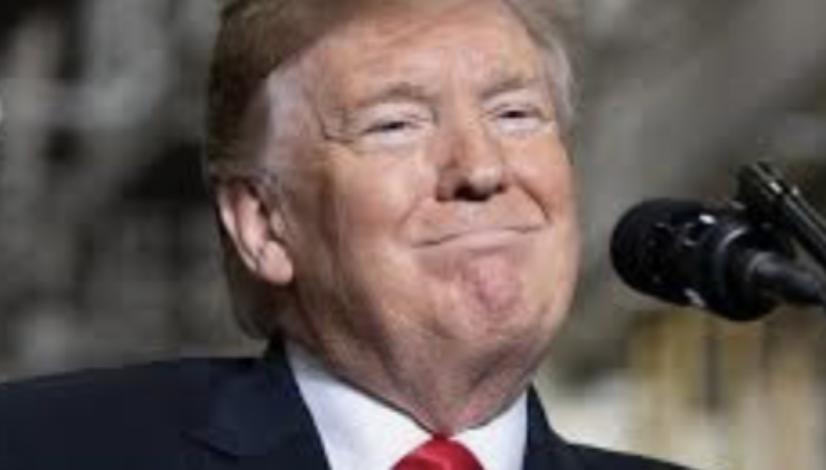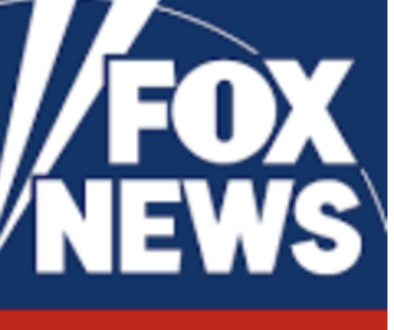With 5 weeks to go, the economy and Trump are surging

Democrats are banking on high unemployment and a weak economy torpedoing President Trump’s reelection chances. That increasingly looks like a risky bet. Not only is the country recovering from the pandemic faster than expected, but a plurality of Americans credit the president’s policies for the snap-back.
Much to economists’ surprise and Democrats’ dismay, the recovery looks like a “V.” The Atlanta Federal Reserve’s GDP Now series projects third quarter GDP growth at 31.7 percent; that’s up from 12 percent at the end of July.
Trump’s prospects have climbed with the improving data. The Real Clear Politics average of polls now has Democratic presidential nominee Joe Biden leading by 6.2 percent; in late July he was ahead by 9 points.
Americans always have and always will vote their pocketbooks. The year 2020 may prove an outlier in many ways – and we surely hope that it does – but some laws of economics and politics remain in place.
Against all odds, Americans continue to spend, even as movie theaters, football stadiums, restaurants, hotels and bars remain under wraps in many cities.
The most recent data shows retail spending rose 0.6 percent in August compared to July. The report showed moderating growth; economists had predicted a slightly bigger gain.
But really, the fourth straight monthly increase was nothing short of remarkable.
After all, Congress’s $600 per-week extra unemployment benefits expired at the end of July. Those hefty payments, blamed by some in the business community for keeping people from returning to work, propped up spending earlier in the year.
Though Trump signed an executive order authorizing $300 per week supplemental pay on top of normal state unemployment, the program was slow to roll out. By late August, only five states were dispensing the extra aid.
Economists had estimated the lost payments to some 30 million people could cut aggregate spending by as much as 4.7 percent; instead, outlays in August were not only ahead of July’s level, they were up 2.6 percent compared to 2019 totals.
Think about that: Much of the country has been in virtual lockdown since March, millions are still unemployed and Americans face uncertainty about nearly everything, including the election outcome and what that might mean for economic policy.
And don’t forget — August retail spending is usually pumped up by “back to school” sales. This year, back to school is more like “back to your bedroom” as many education departments across the country opt for extended virtual learning, or at best a mix of in-person and online teaching.
Given all the uncertainties, one might have expected consumers to sit on their hands, harboring their resources and maybe boosting savings or paying down debt. Instead, they upped spending nearly 5 percent on restaurants and bars, 2.9 percent on clothing and continued to increase outlays on home improvement.
The weakest categories included online shopping, which has been on fire in the midst of the lockdown, but which was flat month-to-month for the first time this year. Also, somewhat predictably, another virus winner – sports, music and hobby stores – saw sales tail off almost 6 percent. There are only so many puzzles and Pelotons that most families need.
Continued robust consumer spending in the face of enormous headwinds says a great deal about the mood of the country. A recent FT-Peterson pollasked Americans whether they were better or worse off than they were four years ago, echoing the iconic question from Ronald Reagan that helped topple incumbent Jimmy Carter in 1980.
In August, one-third of likely voters said they were worse off, while one-third answered that they were better off. Needless to say, the answers were driven by politics; two-thirds of Republicans claim to be better off while 52 percent of Democrats say they are worse off.
That sounds pretty bad, except that those responses are pretty much unchanged from last October, even though the economy is in a far darker place in terms of unemployment. That suggests that the answers are more politically driven than responsive to extant circumstances.
Asked if Trump’s policies had hurt or helped the economy, 48 percent said they had helped while 44 percent said they had hurt. So, even as job losses mounted and incomes took a hit, most voters think that Trump’s approach to growing the economy was more beneficial than harmful.
An AP-NORC poll is also revealing. In this one, also from August, 62 percent of respondents described the national economy as poor, up from 33 percent in January. But, asked about their own personal financial position, 63 percent answered that it was good. That was a drop-off from 69 percent in January, but still a remarkable testament.
How do we square these various sentiments? First, rounding into 2020, most Americans were bullish about their prospects, jobs were plentiful, incomes were rising and most were paying lower taxes. The economic conditions of tens of millions of Americans had improved over the previous two years.
Thus, many were in better shape to weather the unforeseen downturn that hit the country in March. Reporting on the AP-NORC poll, a PBS articlenoted the “paradox of [the] pandemic” is that 12.9 million people have lost a job and a dangerous rash of businesses has closed, yet the personal finances of many Americans have remained strong — and in some ways have even improved.”
Indeed, many families have seen their net worth expand due to a rising stock market and higher home prices. Not only have increased share prices boosted Americans’ portfolios and retirement plans, they have also signaled optimism about the recovery.
Optimism that Democrats and the Biden campaign have tried diligently to suppress.
Nancy Pelosi (D-Calif.) and her colleagues have blocked increased relief measures, including a $300 billion package promoted by GOP senators. Democrats don’t want to boost the economy; they know how job gains will help the president’s chances.
As it happens, more federal help may not be necessary. Low inventories, rebounding home building and a global upturn may keep our economy expanding — and Trump’s chances improving.
https://thehill.com/opinion/campaign/516737-with-5-weeks-to-go-the-economy-and-trump-are-surging
Published by The Hill




